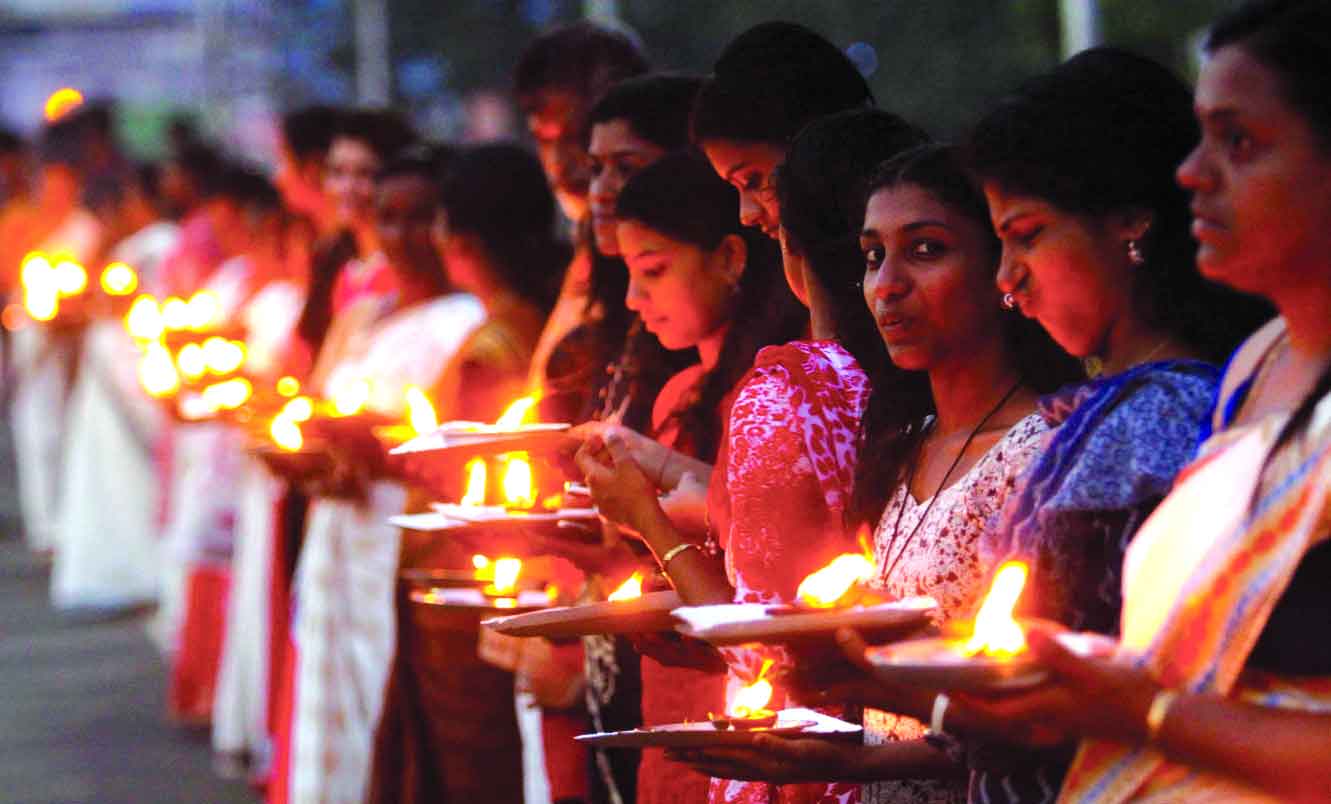By, Khadija Kothia, BA History
Photo credits: The Pioneer
On 3 January 2019, Indian women in Kerala caught the world’s eye. Photos displayed five million women standing in a 385 mile-long line that spanned the entire width of the city. Stories reported that the women were demanding an end to violent agitations against women trying to enter Kerala’s Sabarimala temple, a motion which the Indian Supreme Court had passed in September 2018. The images unsurprisingly caught global attention, and the photos with brief 280-character captions championing the line’s message received retweets in their thousands. It was certainly a sight to behold, and seemingly also celebrate.
However, though this awe-striking display was caught on camera, the presumed demonstration of female freedom and empowerment was not quite as organic as it seemed. The wall was more a manufactured demonstration planned by the Marxist-led Kerala government against its Hindu right-wing rivals, and less so a feminist demonstration. Several allegations made by women’s group activists revealed that government-employed women were threatened with dire consequences had they not joined the wall, with many feeling obliged as to not lose their jobs. As a result, contrary to the initial shallow feminist exterior, the wall was a contradictory representation of the exploitation of social justice displays as a tool for oppression.
Foreign correspondents must primarily aim to understand cultural differences in order to avoid airbrushing and silencing voices.
But most importantly, the Kerala women’s wall has become yet another reason why Western journalism must stop viewing the rest of the world through a Western-centric lens. Media outlets saw a wall of brown women standing together in a part of the world largely portrayed as
Foreign misreporting is the result of carelessness, and in large respect, down to the lack of diversity within journalism. Within the UK itself, 94 percent of the profession consists of white journalists, compared to 87 percent of the UK population. For foreign stories, Western journalists often rely on foreign sources to relay information, and in some circumstances, journalists are awarded by NGOs to write propaganda. This automatically creates the assumption that non-Western news is inherently peculiar and abnormal. If the role of a journalist is to rightly hold those in positions of power to
Perhaps, at the other end of the spectrum are the recipients themselves. In an increasingly
